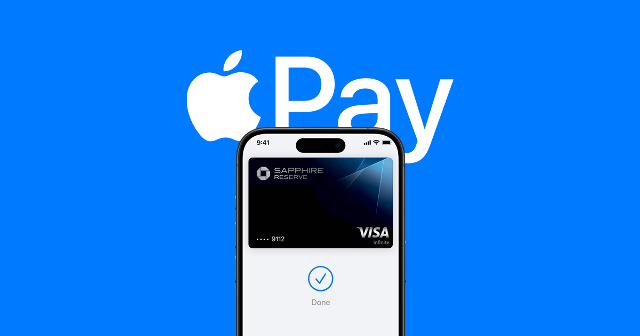Apple has agreed to open its tap-and-go mobile payments system to competitors, according to the EU’s antitrust regulator.

Margrethe Vestager, the EU’s antitrust chief, noted that while Apple has agreed to this specific change, the company has yet to fully align its business practices with the Digital Markets Act (DMA).
Top competitors to Apple Pay in the mobile-wallet category are PayPal, Google Wallet, Coinbase Wallet, MasterPass, M-Pesa, Alipay, WeChat Pay, among others. There is no data on how much money Apple has generated via its strong dominance of Apple Pay in iPhones.
The size of the global mobile payment market is expected to reach $853.04 billion by 2031 from $72.04 billion in 2023, at a CAGR of 36.2 percent during the forecast period (2024–2031).
Investigations and Compliance Issues
Apple is currently under three separate investigations related to the DMA, which aims to ensure a level playing field for competitors and provide users with more choices, Reuters news report said. Last month, Margrethe Vestager stated that Apple’s App Store rules breached the DMA and initiated a probe into new contractual terms for app developers and rival app stores. Despite these actions, Margrethe Vestager reported no significant compliance changes from Apple.
“What I can say so far is that we have not seen a change in behaviour on Apple’s side when it comes to our preliminary findings,” Margrethe Vestager said during a press conference. She expressed hope that Apple would engage in discussions to align with DMA expectations, stating that it would be beneficial for consumers and respectful to legislative requirements.
Tap-and-Go System Agreement
Earlier on Thursday, Margrethe Vestager announced that she accepted Apple’s offer to open its tap-and-go mobile payments system to rivals, concluding a four-year investigation that could have led to substantial fines. The European Commission, acting as the EU’s antitrust enforcer, stated that Apple’s commitment would remain valid for 10 years.
More than 3,000 banks and issuers in Europe currently offer Apple Pay. With this new agreement, Apple will no longer be able to use its control over the iPhone ecosystem to exclude other mobile wallets from the market. Margrethe Vestager emphasized the significance of this development, stating, “From now on, Apple can no longer use its control over the iPhone ecosystem to keep other mobile wallets out of the market.”
This move represents a critical step in enhancing competition and consumer choice in the mobile payments sector across Europe.
Competition Concerns
The European Commission raised issues regarding Apple’s refusal to grant rivals access to the Near-Field-Communication (NFC) technology used for contactless payments in stores. Apple Pay, Apple’s own mobile wallet, is currently the only app able to use NFC on iPhones, as Apple does not permit third-party developers access to this technology.
The Commission’s preliminary investigation found that this exclusivity may have led to less innovation and reduced choices for iPhone users, potentially violating Article 102 of the Treaty on the Functioning of the European Union (TFEU), which prohibits the abuse of a dominant position.
Initial Commitments
# Free access for third-party wallet providers to the NFC input on iOS devices.
# Implementation of a fair and non-discriminatory procedure for granting NFC access.
# Enabling users to set an HCE payment app as their default for in-store payments.
# Establishing a monitoring and dispute settlement mechanism.
# Applying these commitments to all third-party developers in the European Economic Area (EEA) and all iOS users with an Apple ID registered in the EEA.
Amended Commitments
# After market testing between January 19, 2024, and February 19, 2024, Apple amended its proposal to further address the Commission’s concerns:
# Extending HCE payment app initiation to other certified terminals, such as merchant phones.
# Allowing HCE developers to combine the payment function with other NFC functionalities.
# Removing the requirement for developers to have a license as a Payment Service Provider (PSP) to access NFC input.
# Enabling NFC access for pre-built payment apps for third-party providers.
# Updating HCE architecture to comply with evolving industry standards.
# Allowing developers to easily set up and prompt users to set their default payment app.
# Protecting confidential information obtained during audits and complying with industry standards.
# Shortening deadlines for resolving disputes and offering additional procedural guarantees for monitoring.
The Commission’s acceptance of these commitments marks a significant step in opening up the iPhone ecosystem to greater competition and innovation in the mobile wallet market.
Baburajan Kizhakedath
